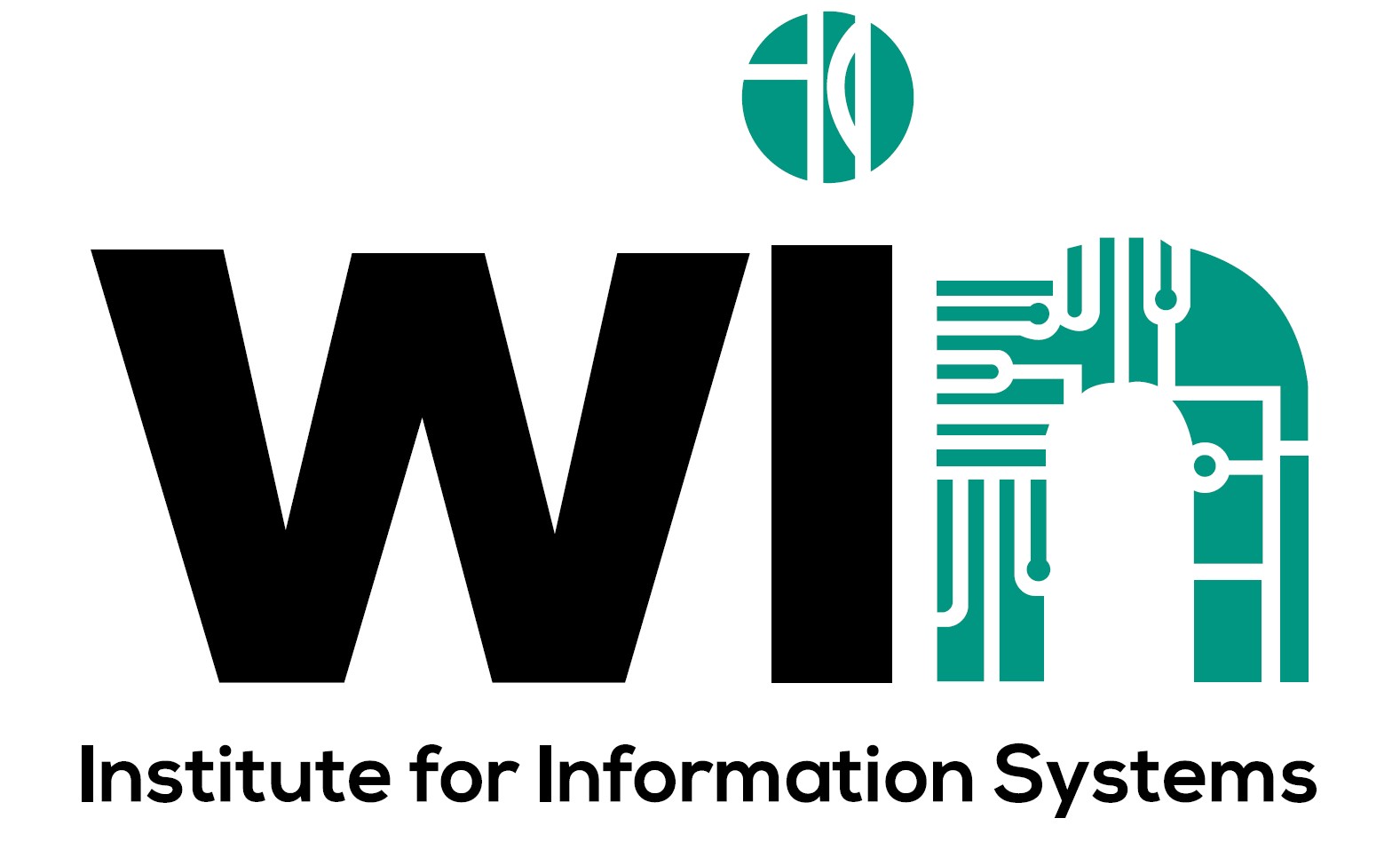Welcome
The Institute for Information Systems (WIN) was established on January 1, 2025 at the Karlsruhe Institute of Technology (KIT). The founding of the WIN Institute at KIT is a response to the growing importance of investigating and designing the digitalization of economy and society from a socio-technical perspective.
The mission of WIN is to create value from information! We strive for top-tier research in information systems and related fields, leveraging unique research infrastructures, strong community ties, and close collaboration with business, society, and politics to drive innovation. We deliver solutions for real-world problems, and inspire as well as challenge our students through research- and practice-based teaching.
The following research groups belong to WIN:
| Information Systems I | human-centered systems lab (h-lab) | Prof. Dr. Alexander Mädche |
| Information Systems II - Digital Energy Markets | TT W1 N.N. |
| Information Systems III | Prof. Dr. Jella Pfeiffer |
| Information Systems IV - Digital Platforms & Services | TT W1 N.N. |
| Information Systems V - Information and Market Engineering (IM) | Prof. Dr. Christof Weinhardt |
In addition, two industry-on-campus groups belong to WIN:
| Digital Service Innovation (DSI) - IBM Industry-on-Campus Group | Prof. Dr. Gerhard Satzger, Dr. Carsten Holtmann |
|
Dr. Rainer Hoffmann, Dr. Sebastian Sternberg |
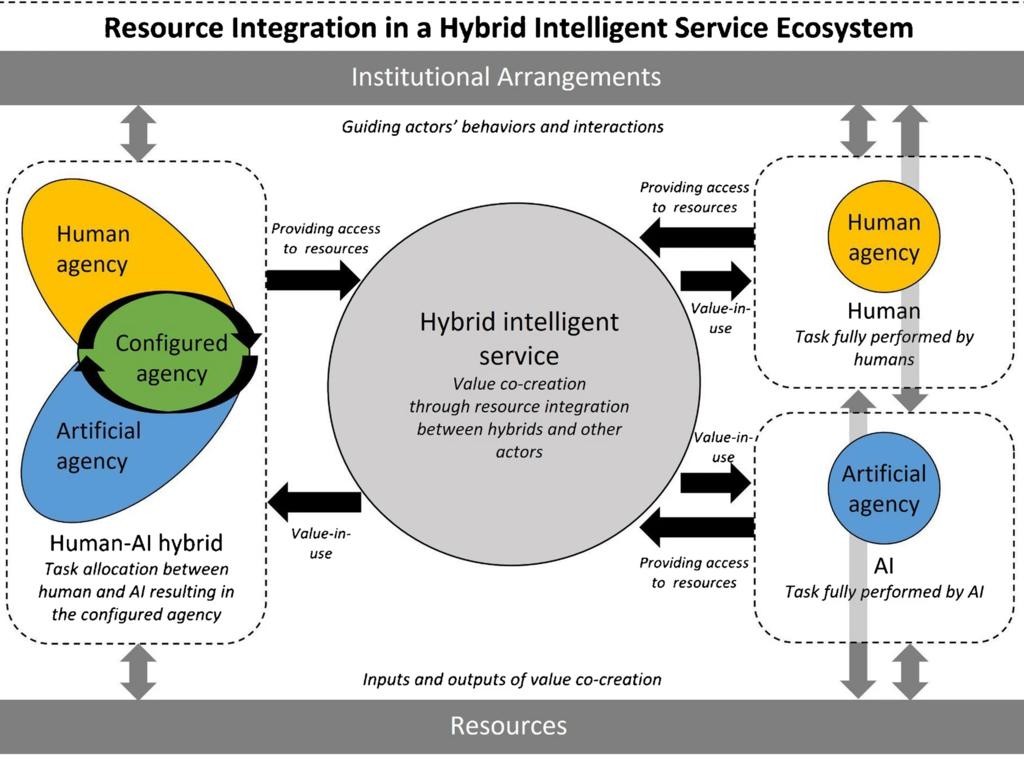
The paper "Conceptualizing hybrid intelligent service ecosystems" has been published in Vol. 35 of Electronic Markets.
The research integrates concepts from human-AI collaboration and service research to present a framework for hybrid intelligent service ecosystems (HISEs). The paper builds on existing knowledge of service ecosystems by examining how human and artificial entities can be intentionally organized for value co-creation through hybrid intelligent service exchange, thereby influencing the formation and evolution of ecosystems.
More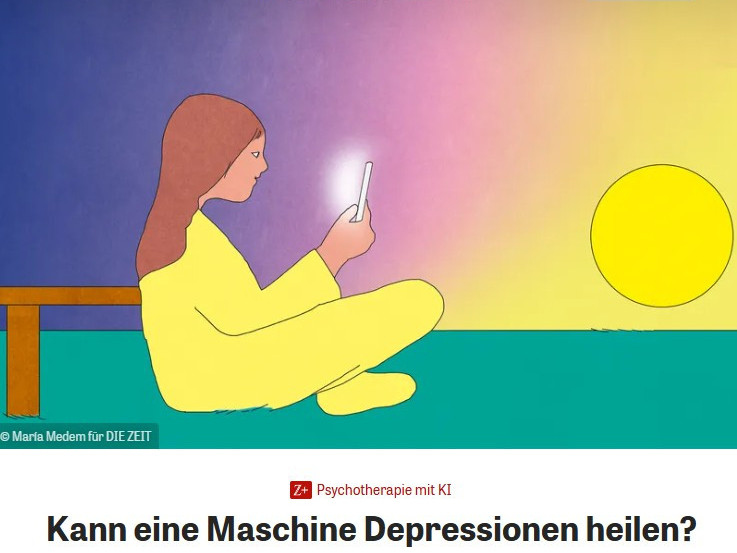
In collaboration with psychotherapists from University of Greifswald, Florian Onur Kuhlmeier, Leon Hanschmann and Alexander Maedche at the human-centered systems lab (h-lab) of the Institute for Information Systems (WIN) are exploring how to train AI systems to provide cognitive behavioral therapy to young people with depression. The team developed a chatbot using large language models that learns therapeutic techniques similar to how human therapists are trained, using, treatment manuals, artificial users and feedback from trained psychotherapists.
More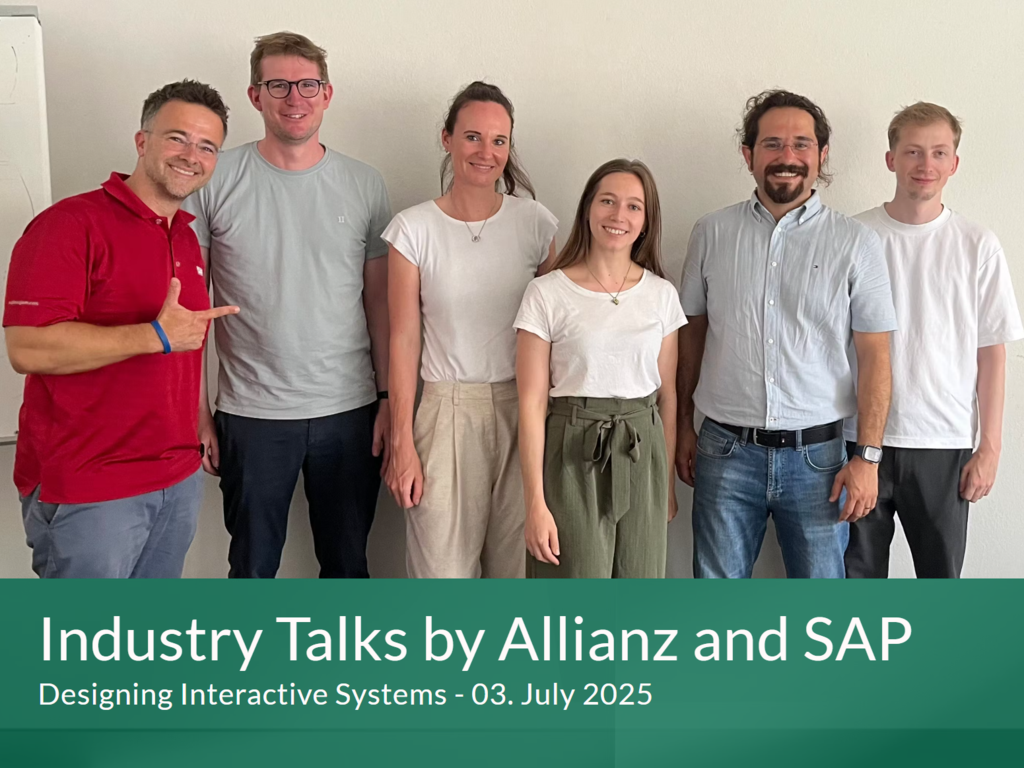
Two industry talks offered valuable insights into the use of AI agents in two distinct business domains: software development at SAP and customer service at Allianz. We were excited to welcome Prof. Dr. Tobias Schimmer and Dr. Philipp Hoffmann from SAP SE, as well as Dr. Peyman Toreini and Magdalena Feldmeier from Allianz Kunde & Markt GmbH. The talks highlighted current challenges and benefits of introducing agentic information systems for internal stakeholders, such as software developers, and the combination of internal/external stakeholders, such as customer service employees and customers.
More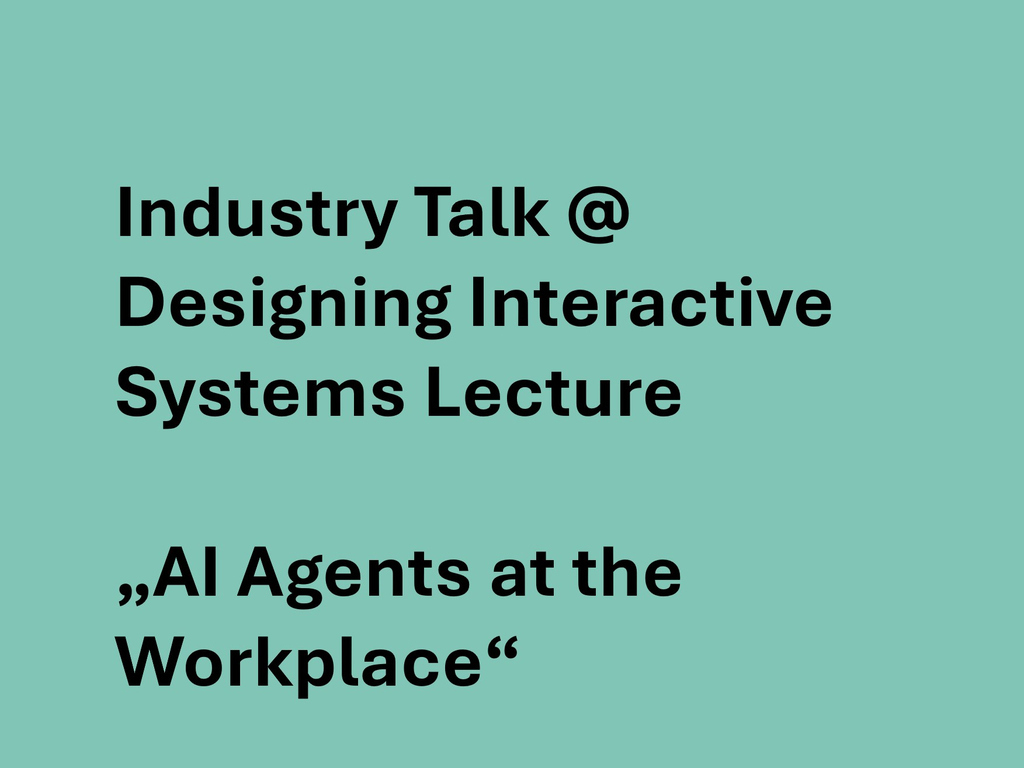
Both talks will explore how AI agents are utilized in their respective workplaces—software engineering at SAP and customer service at Allianz. Furthermore, they will provide insights into what challenges are to faced and share lessons learned on how they overcome them. Feel free to join us at the lecture hall (building 10.11, Room 213)!
More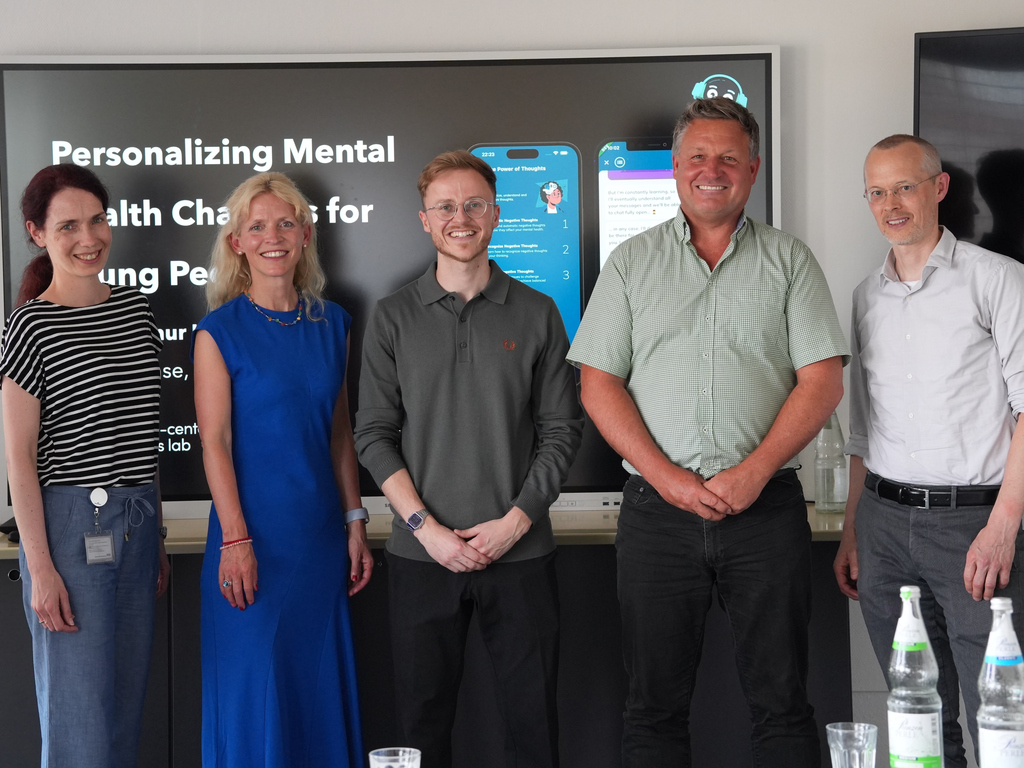
Florian Onur Kuhlmeier successfully defended his PhD thesis titled “Personalizing Mental Health Chatbots for Young People“ on June 25th, 2025. His work contributes to research and practice in the design of personalized chatbots to support mental health for young people. It articulates concrete design recommendations, provides empirical evidence on the effectiveness of personalization strategies, and establishes an innovative approach for the low-risk, effective evaluation of LLM-based mental health chatbots.
More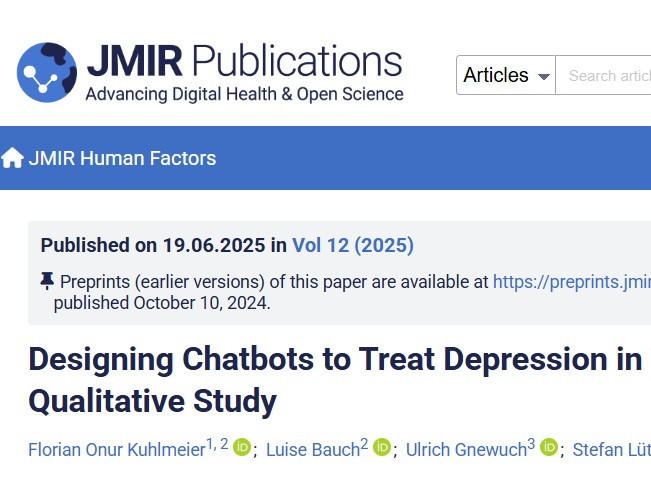
The paper co-authored by Florian Kuhlmeier, Luise Bauch, Ulrich Gnewuch and Stefan Lüttke investigates the problems faced by youth with depression and their adaptive coping strategies, as well as attitudes, expectations, and design preferences for chatbots designed to treat depression. A qualitative study, consisting of a semistructured interview and a concurrent think-aloud session, in which participants interacted with a chatbot prototype with 14 youth with a current or remitted depressive episode as conducted.
More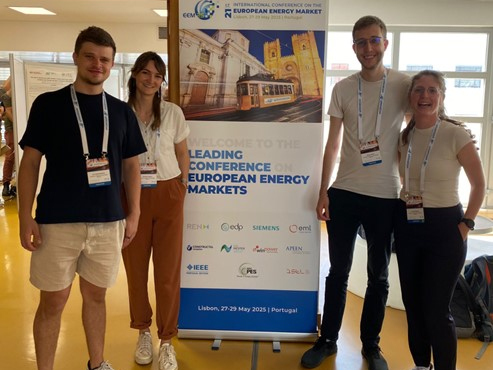
From 27–30 Mai 2025, the SGEM research group had the pleasure of participating in the European Energy Market Conference in Lisbon, Portugal. Four members of our team — Laura Selgrad, Christina Speck, Oliver Resch, and Leo Semmelmann — attended the conference and presented three accepted papers.
More
Human-AI collaboration typically benefits from AI being able to explain its reasoning. While in computervision (CV) there are good methods to technically articulate the foundations of AI responses, they can hardly be understood by humans. Our approach is to link explanations to human-understandable concepts.
_rdax_98s.jpg)
We are delighted that the paper "Designing Context-Aware Urban Citizen Science Systems for Sustained Citizen Engagement: A Pilot Study in Urban Heat Island Detection" by Niklas von Heyden (KIT, WIN, h-lab) and Jeff Parsons (Memorial University of Newfoundland) won the 1st Runner Up Award for Best Conference Short Paper at ECIS 2025
More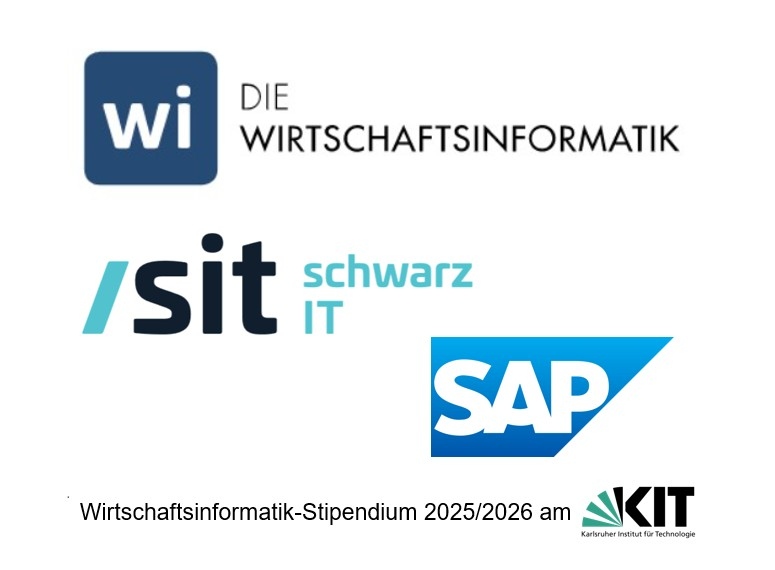
Bachelor's and master's students studying information systems (IS) at KIT can apply for an IS scholarship. The scholarship will start on October 1st, 2025 and will run for 12 months. Scholarship holders are supported with 300 Euros per month. The scholarship is awarded by the non-profit association "Die Wirtschaftsinformatik e.V." and serves to promote young people in the field of IS.
More_cut_rdax_98p.jpg)
We are happy to welcome Doga Dogan (https://www.dogadogan.com), research scientist at Adobe Switzerland. He will give an industry talk titled “Ubiquitous Metadata: Design and Fabrication of Embedded Markers for Real-World Object Identification and Interaction” as part of our B.Sc. lecture Foundations of Interactive Systems (FOIS) on July 15th, 2025, at 9.45 AM. Doga Dogan (PhD’24 from MIT CSAIL) focuses on embedding intelligent interactions and machine-readable information into everyday items.
More_cut_rdax_1024x768_98p.jpg)
WinPod is a digital service provided by the Institute for Information Systems (WIN) at the Karlsruhe Institute of Technology (KIT) that leverages AI to convert research papers into high-quality audio content, making scholarly work at the Institute for Information Systems (WIN) more accessible and easier to digest.
More
